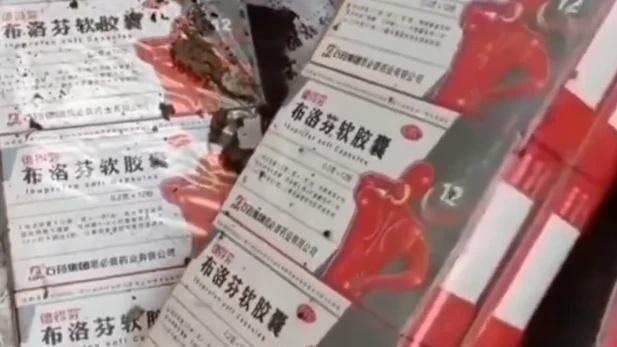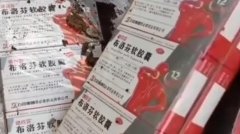
Recently, some netizens shared videos: I found that a lot of ibuprofen was thrown in the trash can with other drugs. None of these drugs were unpacked, and there were hundreds of boxes of conservative estimates.Another netizen showed the 1,000 reduction medicines they purchased. Because they got late, they lost their uses and handled it.Since then, hundreds of boxes of ibuprofen have been thrown into the hot search on Weibo, along with the previous similar incidents, causing discussions such as how much the hazards of overdue drugs and how to deal with excessive medicine.
From a medicine, it is difficult to abandon from a medicine, and it is a ironic rush for Sheng Ji's time.In the early stage of optimization and adjustment of epidemic prevention policies, a variety of cold medicines, fever medicines, and cough medicines were sold out of stock. Brupopen was one of the most sought -after medicines.The snap -up wind is scratching and fierce, and the reminder of rationality is overwhelmed.Today's sought -the -medicine drugs have become abandoned medicines, which is an inevitable result of excessive hoarding.
I have to discard too much for individuals, and it is inevitable that economic losses are inevitable.It is a trivial matter for waste of money. The threat of expired medicine to people's health cannot be underestimated.Drugs are expired without knowing that elderly people and children are easily taken by mistake, and may even endanger their lives.
For this reason, there is a huge price, as well as the social and ecological environment.Regardless of whether the drug is expired, it contains various chemical elements. Raising freely will pollute the land and water source and threaten the biological chain.Expired medicine may be recycled by illegal vendors and put it into the market again.All of these are worried about the phenomenon of large amounts of medicines and discarding drugs at will.
Hundreds of boxes of ibuprofen are thrown into the trash can. In addition to learning from the wind hoarding, it is worth thinking about how to establish a unified and long -term and standardized drug recovery mechanism.Expired medicines are hazardous waste and are included in the national hazardous waste list. They shall be recovered in accordance with the standardized waste waste.However, recycling involves the establishment of recycling points, classification preservation and transportation, centralized destruction and other links. The process is more complicated. There is no unified answer to who do what to do.Expired medicine recovery is expensive, and it is not a long -term plan for losing money to recycle money.
Although it is difficult to recover, there are some effective practices.Pharmaceutical replacement insurance is an innovative approach. This model uses government and pharmaceutical companies to purchase insurance, insurance companies cooperate with pharmacies, pharmacies and residents sign a drug replacement service contract to provide residents with expiry drug replacement services. Residents are beneficial to replacement. Pharmacy is good. Pharmacy is good. Pharmacy is good. Pharmacy is good. Pharmacy is good. Pharmacy is good. Pharmacy is good. Pharmacy is good. Pharmacy is good. Pharmacy is good. Pharmacy is good. Pharmacy is good.You can also get premium income.In addition, in many places, it has also explored the methods of ex -medical exchanges for daily necessities and carriedout public welfare activities.There is also a pharmaceutical company to explore the Internet+expired medicine recycling model. Consumers can call the courier to recycle with one click through scanning the codes of scanning the drug box.These methods have their own advantages and disadvantages, which need to be summarized and refined.
Regardless of which mode of recycling of over -expired drugs, it is based on the consciousness consciousness of expired drug recovery.If people's awareness of recycling is generally lacking, even if the recycling channels are diverse, they will still abandon the phenomenon at will.From the source point of view, reducing the waste of drugs, which depends on increasing the publicity of drug knowledge and guiding residents to establish a reasonable concept of medication. The hospital eliminates large -scale prescriptions, and relevant departments continue to crack down on drug -saving drugs.



